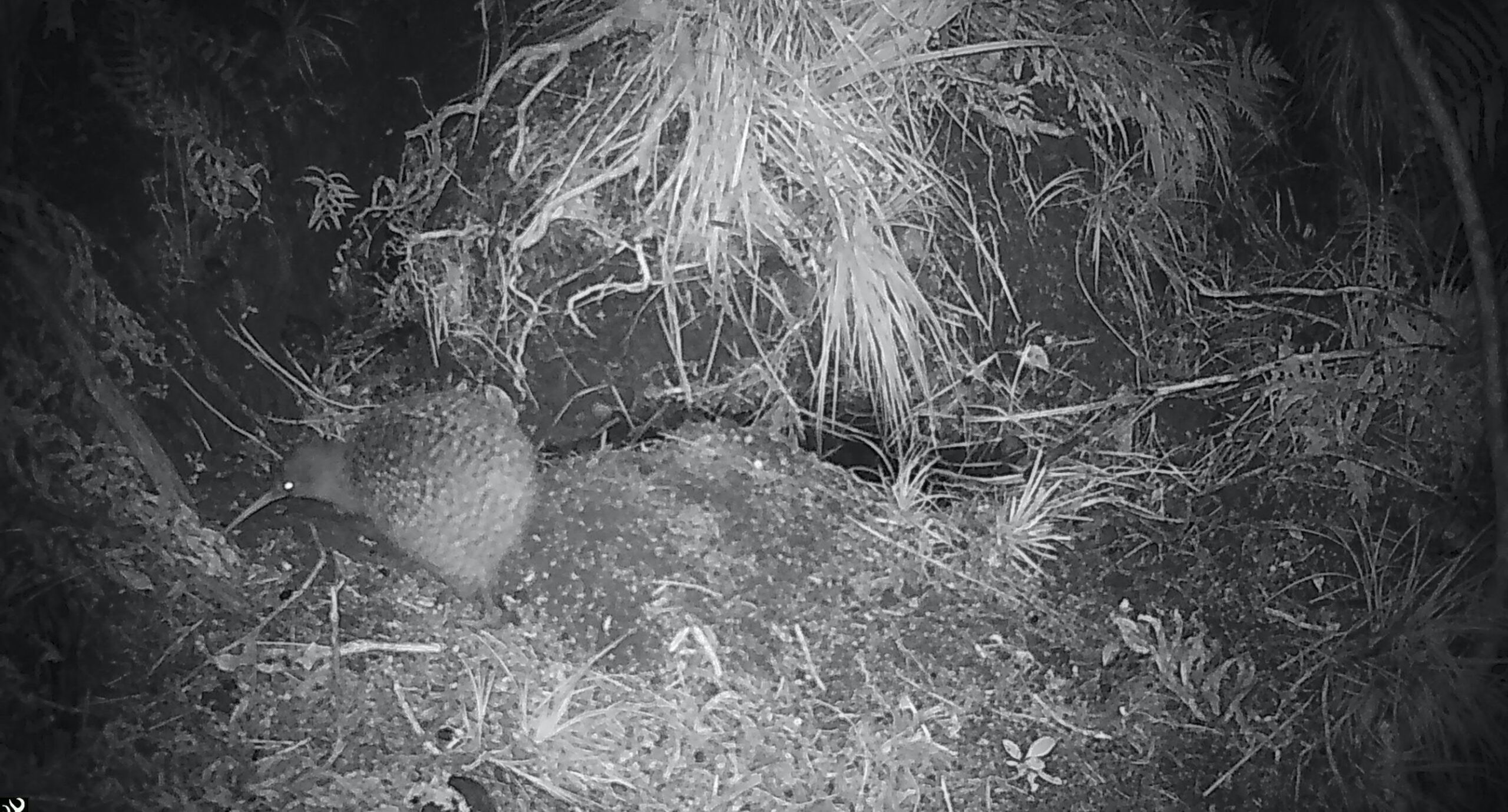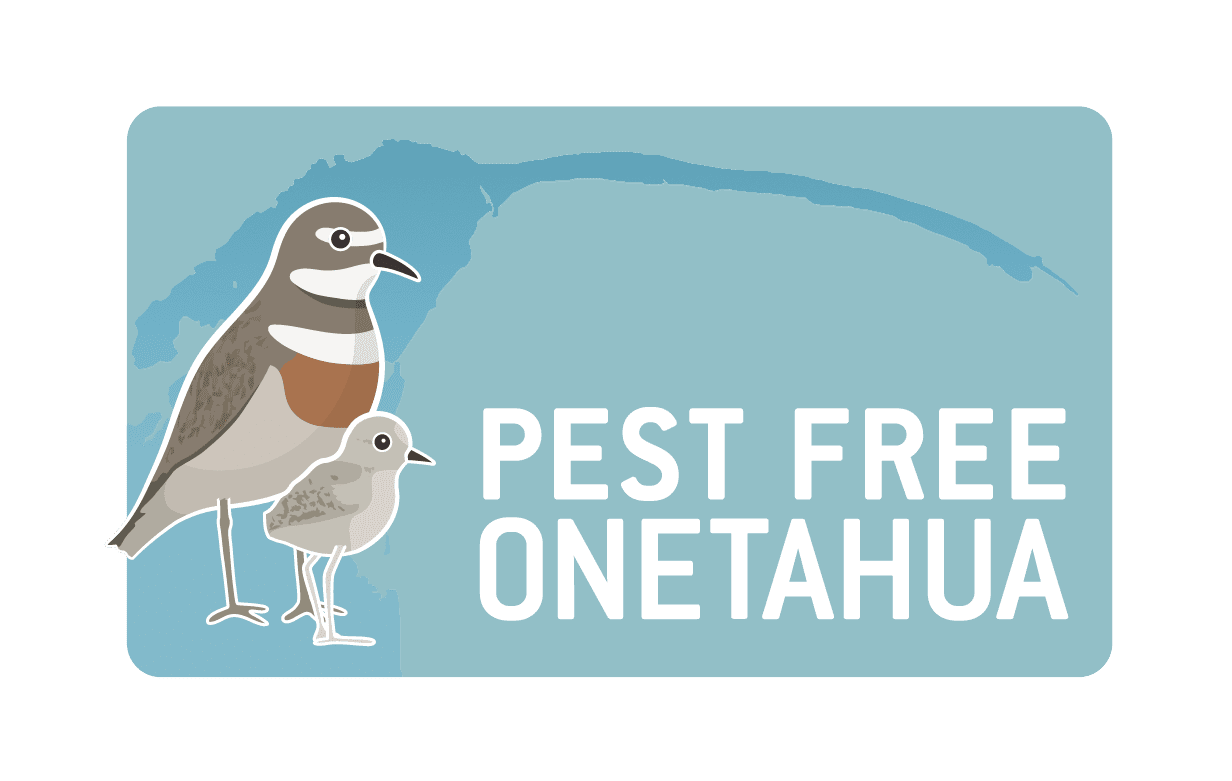
It’s exciting news for conservation in Mohua Golden Bay with our team discovering a great spotted kiwi in our project area. Once common in the hills of Pūponga, there have been no sightings of kiwi here since the 1970’s!
The unexpected discovery was captured on a Pest Free Onetahua trail camera, set up in Pūponga Recreational Reserve to track feral pigs. The find is incredibly exciting and a huge boost to local conservation volunteers and the project’s mission of creating a predator-free environment. Pest Free Onetahua Project Lead Brian Alder was thrilled, saying “it’s game-changing and solidifies the importance of removing all the pests – of course we have lot’s more questions now like; are there more kiwi here, how did it get here and what else lies undiscovered in this special region we’re trying to protect?”.
Happening just days before a final hunt by Pest Free Onetahua to eradicate feral pigs from Farewell Spit, Field Officer Bert Harris described the moment he saw the kiwi on his computer screen as “a bit of a shock.” He’d gone out especially to bring in the camera footage to look for pigs and couldn’t believe his eyes, he recalls “ doing a triple take before telling the team – we’ve found a kiwi!” Margie Little, chair of Manwhenua Ki Mohua, was also very excited, saying “it’s just awesome to find this vulnerable tāonga living in this wāhi tapu, it’s going to propel us forward on our shared pest free journey”.
Department of Conservation Golden Bay Operations Manager Ross Trotter said the great spotted kiwi sighting in Pūponga Recreation Reserve was astonishing and significant. “We’ll work with Pest Free Onetahua to find out if there are other great spotted kiwi in the area where the kiwi was seen”. “Acoustic recorders will be put out to record bird calls, including any kiwi calls, to help find this one, and others in the wider area”. “We’re grateful to Pest Free Onetahua and HealthPost Nature Trust for their efforts in the area to protect native species and increase their abundance. This ongoing work will help protect this kiwi, plus any other kiwi that might be in the area.”
HealthPost Nature Trust’s Project team have been trapping in the region since 2017, with trust chair Peter Butler having long recognised the attributes of this unique area. Finding a great spotted kiwi was completely unexpected – and of course wonderful news for what they’re striving to achieve. HealthPost Nature Trust’s work is centred around protecting the remnant shearwater colonies along the northern coast here, and has over 700 traps deployed in the area. The pest fence at Cape Farewell protects a translocated colony of shearwaters also. “Trust volunteers, some of whom live close to the kiwi sighting, have put in a huge commitment of time and will be stoked to hear of this taonga in the area” said the Nature Trust’s Project Co-ordinator Marian Milne.
Great spotted kiwi, or roroa, are the largest of the kiwi species and are only found in the top half of the South Island, mainly in mountainous habitats. Despite their weighty size, roroa chicks are still vulnerable to stoats and dogs.
